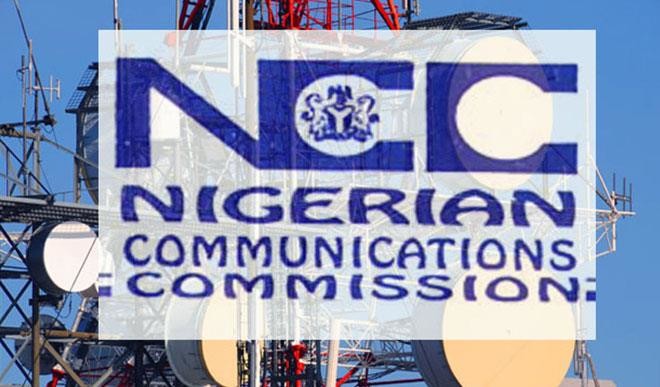
The Executive Vice Chairman of the Nigerian Communications Commission (NCC), Prof. Umaru Danbatta, recently gave a laudable patriotic charge to players in the Nigerian Information and Communication Technology (ICT) sector to go all out and attract more foreign direct investments into the nation’s economy, in line with Federal Government’s strategy of economic diversification aimed to bail the nation out of current recession.
Speaking at a forum in Lagos organised by the NCC, ahead of the ITU Telecom World Conference, holding November 14 – 17 in Bangkok, Thailand, he urged operators to attend and market Nigeria to prospective investors, citing “the growth and attraction” of the sector and “the potentials and capacity of our country” as incentives. “We will tell them that Nigeria is safe for investors and return on investment (ROI) is assured. We will tell them that our regulatory processes are open, effective and transparent,” he added.
Danbatta understands the potential of the ICT sector – telecom industry especially – as a major enabler of socio-economic growth. The Nigerian Telecommunications (Services) Sector Q2 2016 report by the National Bureau of Statistics (NBS) indicated the telecom industry contributed about 1.6 billion Naira to Nigeria’s GDP in that quarter.
The reality on ground however is not as rosy as projected. An objective analysis of the industry’s performance in terms of GDP contribution, actual versus growth rate potential, proves this. If performance consistently remains below projections, this indicates an underlying problem. The nation’s recession period is not the time to sugarcoat facts or pay lip service.
Can we sincerely say that the telecom industry is investor friendly and can attract more investments? I think not; the cost of doing business in Nigeria is still one of the highest in the world. The cat and mouse, being played by NCC and operators, makes one wonder if the regulator is a foe or a friend. At this time, it is unlikely that prospective investors would consider the Nigerian market unless there are practical steps taken to address current challenges. The recent auction of the 2.6GHz licenses by the NCC ended with only one operator bidding for it; this failed exercise is a testament that investors’ confidence is very weak.
The telecom industry is presently bogged down by ineffective regulations and unpredictable, draconian policies like the imposition of 1.04 trillion Naira fine on an operator, over its failure to disconnect lines that were not fully registered. While such infractions should not be condoned in view of national security, the better approach is for government to consider long term implication of intense punitive actions on investment. Then, choose balanced ways to ensure the errant company is corrected while the business is preserved. It won’t be farfetched to attribute that fine to the first ever operational loss posted by MTN Group in its 2016 H1 financial report.
Policies that are inimical to industry growth will discourage investors whether local or foreign. Multiple taxation and vandalisation of telecom infrastructure are still of great concern. As the industry regulator, can it be said that the NCC has been effective or instrumental in bringing these matters to a close? The CBN has again announced that 60% of available forex will be for the manufacturing industry, meaning other industries will jostle for 40%. What has NCC said about this? I am not aware of interventions with the CBN to review its forex policy, as it affects telecom industry. I can imagine that the challenge of scarce foreign exchange and increased inflation will adversely blow operational cost. Return on investment will continue on a sharp decline, unless apt measures are quickly put in place to bolster the free fall.
The National Assembly is seeking to impose a 9% tax on some telecom services such as calls and SMS messages. The Chairman of ALTON, Engr. Gbenga Adebayo, along with other industry groups, has challenged this Communication Service Tax, a cost which will be passed unto the subscribers. What is NCC’s view of this tax on its industry, considering this additional tax results in multiple taxation which it has consistently spoken against? Why has the NCC kept silent on this tax which will further discourage investments in the sector? The disturbing issue here is that NCC’s posture has not demonstrated that of a facilitator of growth and investment. While NCC is aware that this tax portends negative implication for consumers and telecom industry, it leaves much to be desired that the commission has not made any intervention to the executive and legislature to stop the new tax.
So then, where are the empirical evidences of “the growth and attraction” of the sector? What assures existing investors of ROI, much less prospective investors? What are the indices to convince would-be investors that “our regulatory processes are open, effective and transparent”? The time is now for the regulator to take a clear and open stance against this CST Bill because it is a threat to Nigeria achieving its broadband penetration agenda and other developmental goals. If the ICT industry is to play a significant part in the diversification agenda, then the NCC needs to first correct the anomalies bedeviling the industry.
Looking for new investors into the telecom industry at this time, is a less strategic move than creating a vibrant, efficient and competitive environment that will enable existing investors fully optimise capacity. If the climate is attractive for investment, the NCC would not need to campaign for investors, the industry will sell itself. In my view, the NCC needs to lead the advocacy for a more enabling environment and promote issues that support its call for additional investments. NCC needs to assure existing and prospective investors of ROI, ensure proactive regulation and strengthen regulatory processes. It is also imperative that NCC holds regular interactive sessions to deliberate on feasible solutions to these problems, while it should also be seen to act in like manner as it speaks. Then alone can it be said that Nigeria is a safe haven for investors.
Farouk is a social commentator and national affairs analyst in Abuja

 Join Daily Trust WhatsApp Community For Quick Access To News and Happenings Around You.
Join Daily Trust WhatsApp Community For Quick Access To News and Happenings Around You.

